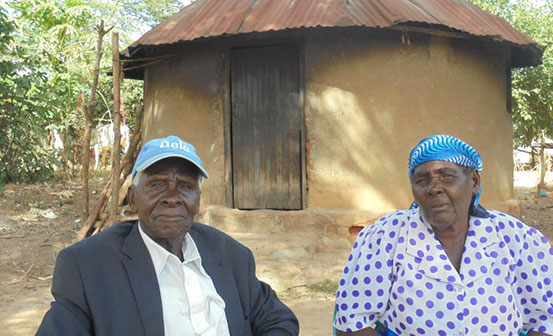×
The Standard e-Paper
Stay Informed, Even Offline

Solomon Mulang’a with his wife Penina Kavutha outside the shack they built in 1961 in Matinyani, Kitui County, when he was a police constable stationed at Embakasi, Nairobi. [Photo: Joe Ombuor/standard]
Solomon Mulang’a was once an energetic police officer in founding President Jomo Kenyatta’s security escort detail before becoming Vice President Jaramogi Oginga Odinga’s lead bodyguard.